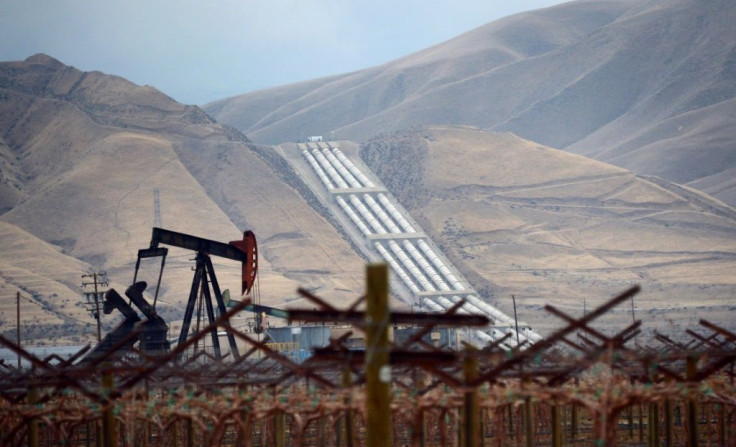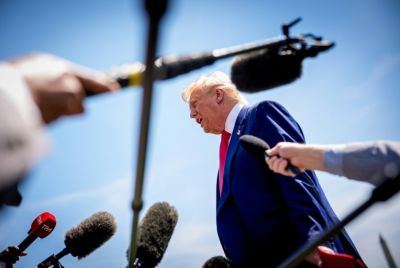Top Oil Producers Except Mexico Agree To Output Cuts: OPEC

Major oil producers except Mexico agreed to cut output in May and June by 10 million barrels per day, OPEC said Friday, after marathon talks to counter a collapse in prices.
The videoconference led by the Organization of the Petroleum Exporting Countries has been seen as the best chance of providing support to prices, which have been wallowing near two-decade lows due to the coronavirus pandemic and a price war between key players Saudi Arabia and Russia.
The agreement, which also reduces production by eight million bpd from July to December, depends on Mexico's consent for it to take effect, the oil cartel said after the meeting.
The virtual meeting of OPEC countries, dominated by Riyadh, and their OPEC+ allies including Russia, as well as other key non-members, began just after 1440 GMT on Thursday.
Talks dragged on into the small hours of Friday. Bloomberg News reported that the main sticking point was the refusal of Mexico to sign up to its share of cuts under the deal, which would have been 400,000 barrels per day.
Mexican Energy Minister Rocio Nahle Garcia tweeted that her country had suggested a cut of 100,000 barrels.
Another virtual meeting is scheduled for June 10 "to determine further actions, as needed to balance the market", OPEC said.
The current agreement also foresees a six mbpd cut from January 2021 through April 2022. An extension to the cooperation deal will be reviewed in December next year, OPEC said.
Saudi Arabia will on Friday also host a separate virtual gathering of energy ministers from the G20 group of major economies in a similar bid to ensure "market stability".
Stephen Innes, an analyst at AxiCorp, said the supply cuts were "less than the market hoped for" given the hit to demand from coronavirus lockdowns throughout the world.
"The deal currently tabled will only partially offset oil price distress, but that's what it was supposed to do. Still, the storm clouds for oil prices will only completely dissipate when lockdowns are lifted," he said.
Rystad Energy also said market equilibrium would not be re-established although the cuts for May and June would prevent prices from crashing.
Oil prices have slumped since the beginning of the year due to the COVID-19 pandemic.
At the beginning of the meeting, OPEC Secretary General Mohammad Barkindo warned that the rapid economic damage wrought by the virus meant the industry's "supply and demand fundamentals are horrifying".
"Our industry is hemorrhaging; no-one has been able to stem the bleeding," Barkindo said, bemoaning companies already filing for bankruptcy and the tens of thousands of jobs that have been lost.
Compounding the problem, Riyadh and Moscow had both ramped up output in a bid to hold on to market share and undercut US shale producers.
While the US is not in the OPEC or OPEC+ groups, it is supportive of a reduction in supply in order to stabilise prices and breathe new life into its shale industry.
US President Donald Trump had expressed optimism about the prospects for an agreement -- even as the talks appeared to be at an impasse.
Fresh from a conference call with Russian President Vladimir Putin and Saudi leader Crown Prince Mohammed bin Salman, Trump told a press briefing at the White House at around 2230 GMT on Thursday that a deal was "close".
Shale has transformed the US into the world's top producer, but the industry cannot sustain its high cost base as prices collapse.
Yet the US oil sector appears reluctant to trim production, having extracted a near-record 13 mbpd in the final week of March. This fell to 12.4 mbpd last week.
At the same time, the global supply glut -- already weighing on oil markets before the coronavirus crisis -- has stretched oil storage capacity to its limits, forcing many producers to scale back output.
In his opening statement to the meeting carried by the Rossiya 24 channel, Russian Energy Minister Alexander Novak welcomed the presence of several nations outside the OPEC+ alliance, namely Canada, Norway, Argentina, Colombia, Egypt, Indonesia, Chad, Ecuador and Trinidad and Tobago.
The International Energy Agency warned Monday that the world is set for its first annual decline in oil consumption in more than a decade because of the pandemic.
The outbreak has shut down large swathes of the global economy, including key sectors such as air travel, manufacturing and retail.
The global oil glut could reach 25 mbpd in April, according to Rystad Energy.
© Copyright AFP 2024. All rights reserved.





















